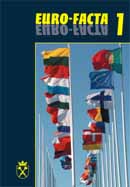The Significance of the Paneuropean Picnic with regards to Pan Europe and Paneuropean Eastern Policy
The Significance of the Paneuropean Picnic with regards to Pan Europe and Paneuropean Eastern Policy
Author(s): Annette WeichelSubject(s): Politics / Political Sciences
Published by: KSIĘGARNIA AKADEMICKA Sp. z o.o.
Keywords: Paneuropean Picnic; Paneuropean Union; Paneuropean Eastern Policy
Summary/Abstract: Annette Weichel analyses the phenomenon of the Paneuropean Picnic in the context of Pan Europe and of the Paneuropean Eastern policy, discussing the conditioning of the Eastern policies and providing insights of their external and internal outcomes. The work is composed of six parts, the first of which constitutes an introduction to the issues of Paneuropean Eastern policies, and to some extent it also explains the author’s own fascination with the phenomenon. The second and third parts describe the political and historical context of the the Paneuropean Picnic, the former discussing the foundation from which Paneuropean policies sprang and the development of the movement in the historical context, and the latter focusing on Central European policies during the cold war. The fourth chapter focuses on the current issues after the spring of 1989. The author presents three phases of the Paneuropean Picnic: the period preceding the organisation of the event, the moment of the event itself, and the reaction of the world to the event, as well as long-term influences of the Picnic. The final, fifth chapter describes Paneuropean policy after 1989, and the phases described by the author allow the reader to understand the event, whose effects were difficult to predict. Like the historical context and the decisions taken after the end of WWII, the fall of the Berlin Wall appear to be an event of paramount importance. Weichel’s article is particularly valuable for Polish readers, as it describes the political transformation and political changes occurring after 1989 from a perspective completely different from that adopted in Polish analyses of the subject, which generally interpret the events in the context of the „Solidarity” movement and of the Polish cause, while neglecting phenomena which herald political transformations and the development of the idea of united Europe in neighbouring countries. The first event which arose the Poles’ awareness of this context was probably the Krzyzowa (Kreisau) meeting between the Germany’s Chancellor and Poland’s Prime Minister and the political discussions and consultations leading to the reunification of Germany. In this perspective, the first and second articles are aimed at presenting historical and political themes which have rarely been brought up so far.
Journal: Euro-Facta
- Issue Year: 2008
- Issue No: 1
- Page Range: 81-144
- Page Count: 64
- Language: English

